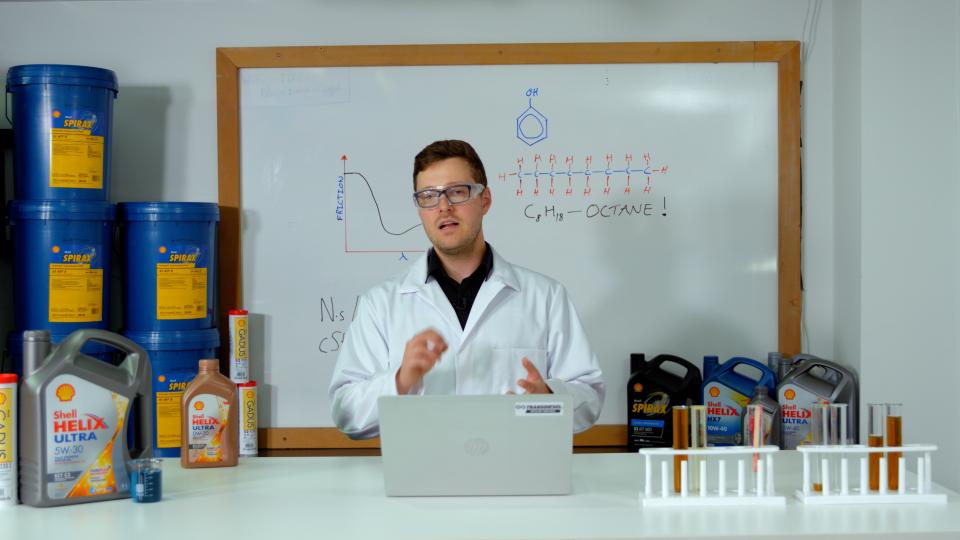Often thought about, sometimes misunderstood, but never forgotten – unfortunately, more often than not, when it’s way too late.
Thankfully, the country’s leading supplier of construction equipment, diesel engines and transmissions to the heavy-machinery industry, is doing its part to ensure end-users are as schooled-up as possible when it comes to choosing the right lubricant for their gear.
“When it comes to oil, no one knows it better than TransDiesel’s Technical Support Engineer, Rob Lundie,” said TransDiesel Marketing Manager, Marc Warr.
“To make best use of one of the best in the business, we have introduced a new interactive online channel to provide education and insight, as well as address any sticky lubricant-related questions.
“He’s too good a resource to keep hidden away and we want him to be able to share his knowledge with not just TransDiesel customers, but also the wider industry as well, hence why we have launched this interactive channel.”
In the spirit of ‘Ask Rob,’ we put a few questions to Rob at the launch of the new online initiative.
Rob, why are you so passionate about Oil and Lubricants?
From a young age I’ve been fascinated with science and engineering. I love figuring out how things work and then wondering how to make them work better. Working with lubricants lets me satisfy that curiosity because they’re used in such an enormous variety of vehicles and machines, and without them most things would grind to a halt pretty quickly. I also had a great role model in my dad, who worked for Shell his entire career. I even spent some time as a kid living next to the Shell site on Pulau Bukom in Singapore, which was then the largest oil refinery in the world!
To most people, especially those who watched The Beverly Hillbillies, it’s just a gushing geyser of black stuff which comes out of the ground – isn’t this the case?
That’s where most fuel and lubricants start their life – as crude oil from under the ground or under the seabed. However, an enormous amount of engineering and chemistry goes into the final product that we use. And don’t forget, crude oil doesn’t just give us fuel and lubricant oils, it’s also a major source of chemicals and raw materials for plastics. Of course, there are new innovations coming to market all of the time, from biobased lubricants made of sustainable plant-derived oils, to oils chemically engineered from natural gas like Shell’s GTL base oil.
What are some common mistakes people make when it comes to oil?
Look for a quality product – don’t just buy the cheapest oil that’s on sale. Modern vehicles and equipment have very specific requirements for their lubrication, so checking that a product is approved by your OEM is the easiest way to guarantee that it’ll work well. Higher quality synthetic oils may also be able to provide longer drain intervals. I think about it this way: why save a few dollars once or twice a year when you’re protecting equipment or components worth thousands or tens of thousands of dollars. Wear and damage are often invisible until it’s too late!
So, what you’re saying is even by spending more on lubricants, you could end up saving money down the line?
Absolutely! We often talk about reducing TCO, Total Cost of Ownership. Spending a little more on oil can generate significant overall savings. The maths doesn’t have to be complicated. If an oil can be used for twice the standard drain interval, but costs 50 percent more, it’ll still be saving you money after only one extended drain. If an engine oil costs double but gives a 1 percent fuel economy saving, it’ll pay for itself many times over in a transport haulage application. That’s before you factor in the cost of component failure and downtime that’s a greater risk when using poor quality products.
How can someone make sure they’re getting it right when it comes to lubricant selection?
Buy quality products with the right specifications from someone you trust. There’s two parts to getting it right:
Select a product that meets your equipment manufacturer’s recommendations. Find recommendations in a manual or handbook, or by contacting the manufacturer directly. A good oil supplier should also be able to help here.
Buy a product that’s guaranteed to meet the specifications that it references. An OEM approval is the gold standard. Be wary of products that claim to be ‘suitable for use’ or ‘can be used where an OEM recommends the following specification.’
Where do you see the future of the lubricant industry?
Like all major industries, sustainability and CO2 emission reduction are the key future aims. Already we’re seeing increases in carbon neutral oils, sustainable vegetable-based oils, recycled packaging, and a focus on low environmental impact and biodegradability. Engine and drivetrain lubricants are reducing in viscosity because this helps improve fuel economy. The lubricants industry really can drive a lot of change, after all our aim is to improve the working life and efficiency of everything mechanical!
And now for the most important question, you were born in New Zealand but have spent most of your life in the UK, so where do your sporting allegiances lie?
I supported NZ in the 2019 Cricket World Cup which was heart-breaking, especially since my wife is English! Apart from that I play it safe: NZ in Rugby, England in football, and anyone who’s playing against Australia.
Thanks for your time Rob, is there anything you’d like to say in closing?
I’d encourage people to send me lubricant related questions and I’ll be happy to answer them and maybe even cover them off in future episodes. At the end of the day I’m a passionate member of the team, and it’s another example of one of the many ways TransDiesel has your back.
To meet Rob, visit
TransDiesel. We’ve got your back.



